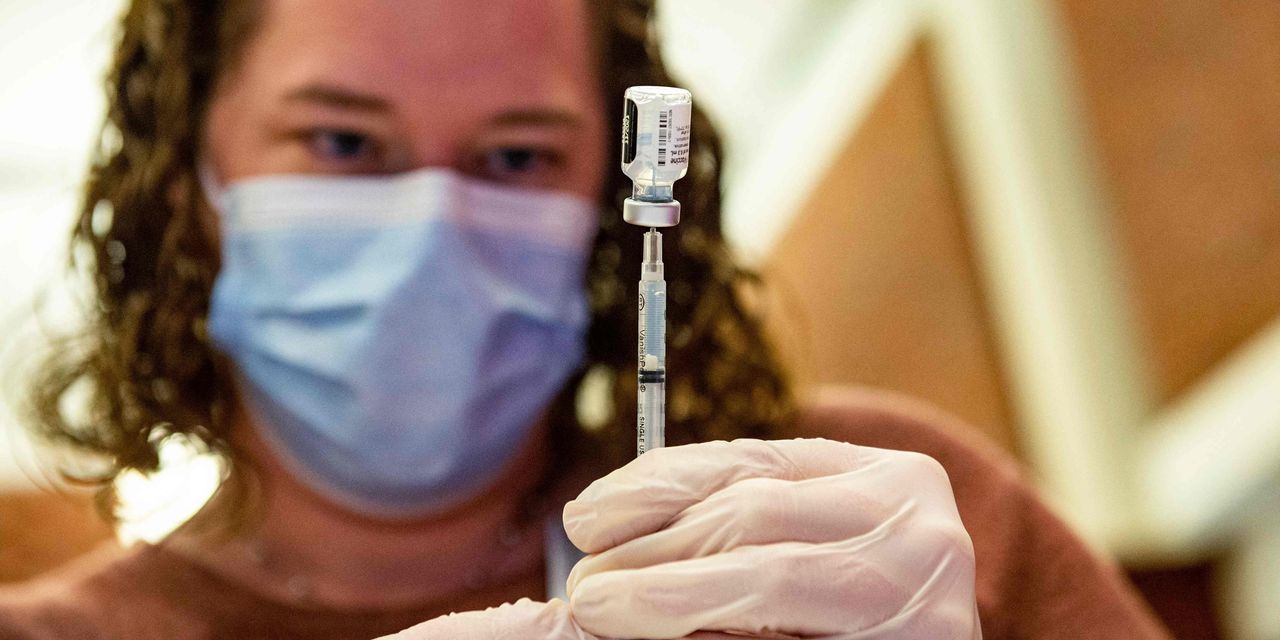Health experts reacted with dismay Monday to President Joe Biden’s assertion that the pandemic is over in an interview on “60 Minutes” that aired on Sunday.
“We still have a problem with COVID. We’re still doing a lot of work on it. … But the pandemic is over,” Biden told CBS News correspondent Scott Pelley. “If you notice, no one’s wearing masks. Everybody seems to be in pretty good shape. And so I think it’s changing.”
Eric Topol, director of the Scripps Research Translational Institute, accused the president of magical thinking and perhaps having too much confidence in the new bivalent boosters.
Others noted that with more than 400 deaths from COVID every day on average, the U.S. is suffering 9/11-level casualties every week, hardly a sign that the pandemic is fully contained.
Others said there’s no way of knowing what will happen once winter sets in and people spend more time indoors together.
Just last week, the head of the World Health Organization said that while the end is in sight, “we’re not there yet.”
U.S. known cases of COVID are continuing to ease, although the true tally is likely higher than reported, because data is not being collected on the many people who are testing at home.
The daily average for new cases stood at 61,712 on Sunday, according to a New York Times tracker, down 29% from two weeks ago. The tracker is showing that cases are rising in seven states, all in the Northeast — Connecticut, Maine, New York, New Jersey, Massachusetts, New Hampshire and Vermont — and that cases are flat in Pennsylvania.
See also: Impact of COVID-19 on life expectancy is misleading
The daily average for hospitalizations was down 12%, to 33,143, while the daily average for deaths was down 6%, to 464.
From the CDC: Stay Up to Date with COVID-19 Vaccines Including Boosters
Coronavirus Update: MarketWatch’s daily roundup has been curating and reporting all the latest developments every weekday since the coronavirus pandemic began
Other COVID-19 news you should know about:
• A bus reportedly taking 47 people to COVID-19 quarantine in southwestern China crashed before dawn Sunday morning, killing 27 and injuring 20 others, the Associated Press reported. The bus overturned on an expressway in Guizhou province, according to a brief statement from the Sandu county police, which did not mention any connection to quarantine.
• The beer is flowing at Munich’s world-famous Oktoberfest for the first time since 2019, the AP reported separately. With three knocks of a hammer and the traditional cry of “O’zapft is” — “It’s tapped” — Mayor Dieter Reiter inserted the tap in the first keg at noon on Saturday, officially opening the festivities after a two-year break forced by the coronavirus pandemic.
• Cities from Anchorage to New Orleans have ended or are winding down a program that housed homeless people in hotels and motels during the pandemic, the AP reported. The program was designed to avoid crowding in shelters. In Denver, Federal Emergency Management Agency funds directed through the Colorado Coalition for the Homeless helped keep a Quality Inn running for the past two and a half years. But the $9 million spent to lease the hotel from its owner and an additional $5 to $6 million in operational costs became unsustainable, said John Parvensky, president and CEO of the coalition.
Here’s what the numbers say
The global tally of confirmed cases of COVID-19 topped 612 million on Monday, while the death toll rose above 6.52 million, according to data aggregated by Johns Hopkins University.
The U.S. leads the world with 95.7 million cases and 1,053,434 fatalities.
The Centers for Disease Control and Prevention’s tracker shows that 224.6 million people living in the U.S. are fully vaccinated, equal to 67.7% of the total population. Just 109.2 million have had a booster, equal to 48.6% of the vaccinated population, and 22.5 million of those 50 and over who are eligible for a second booster have had one, equal to 34.7% of those who received a first booster.


